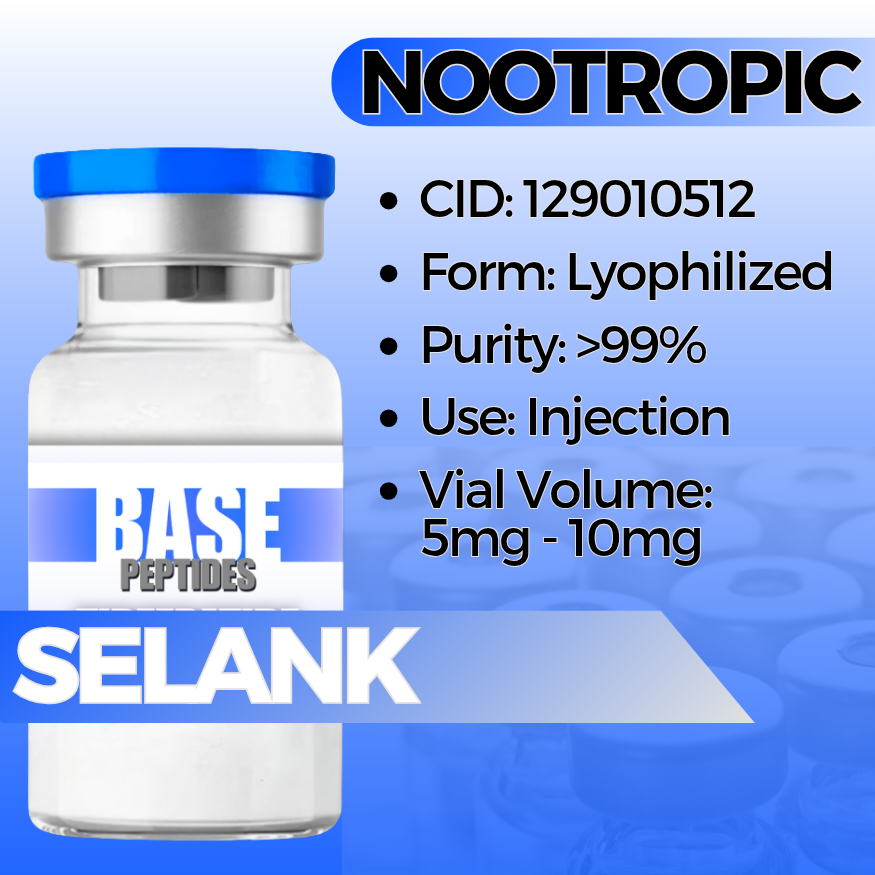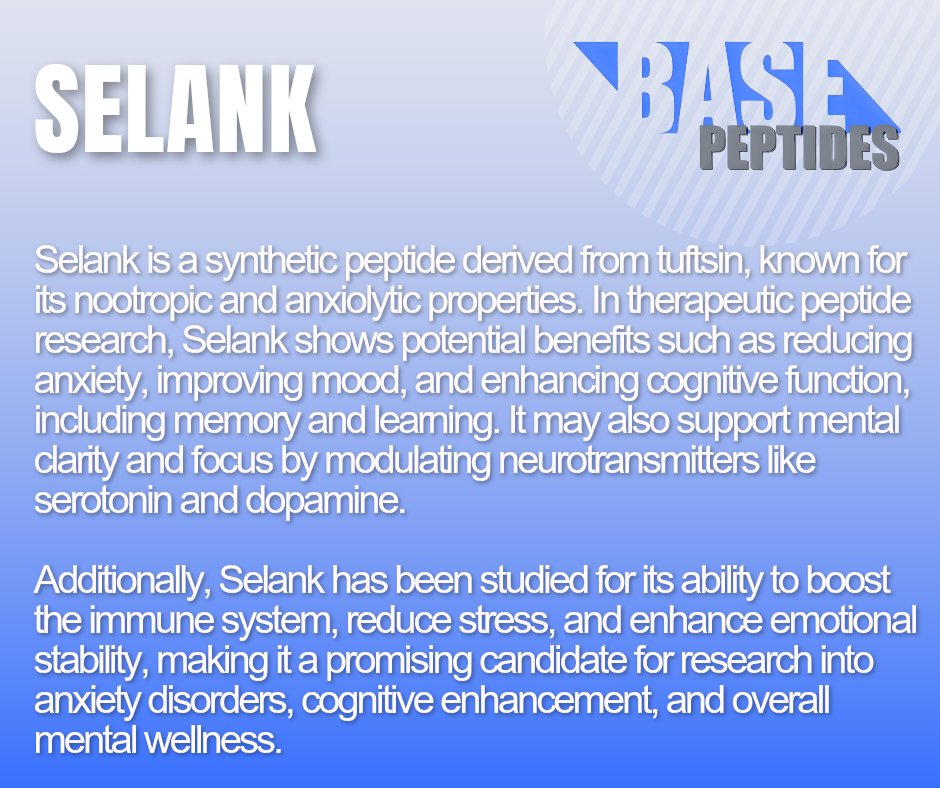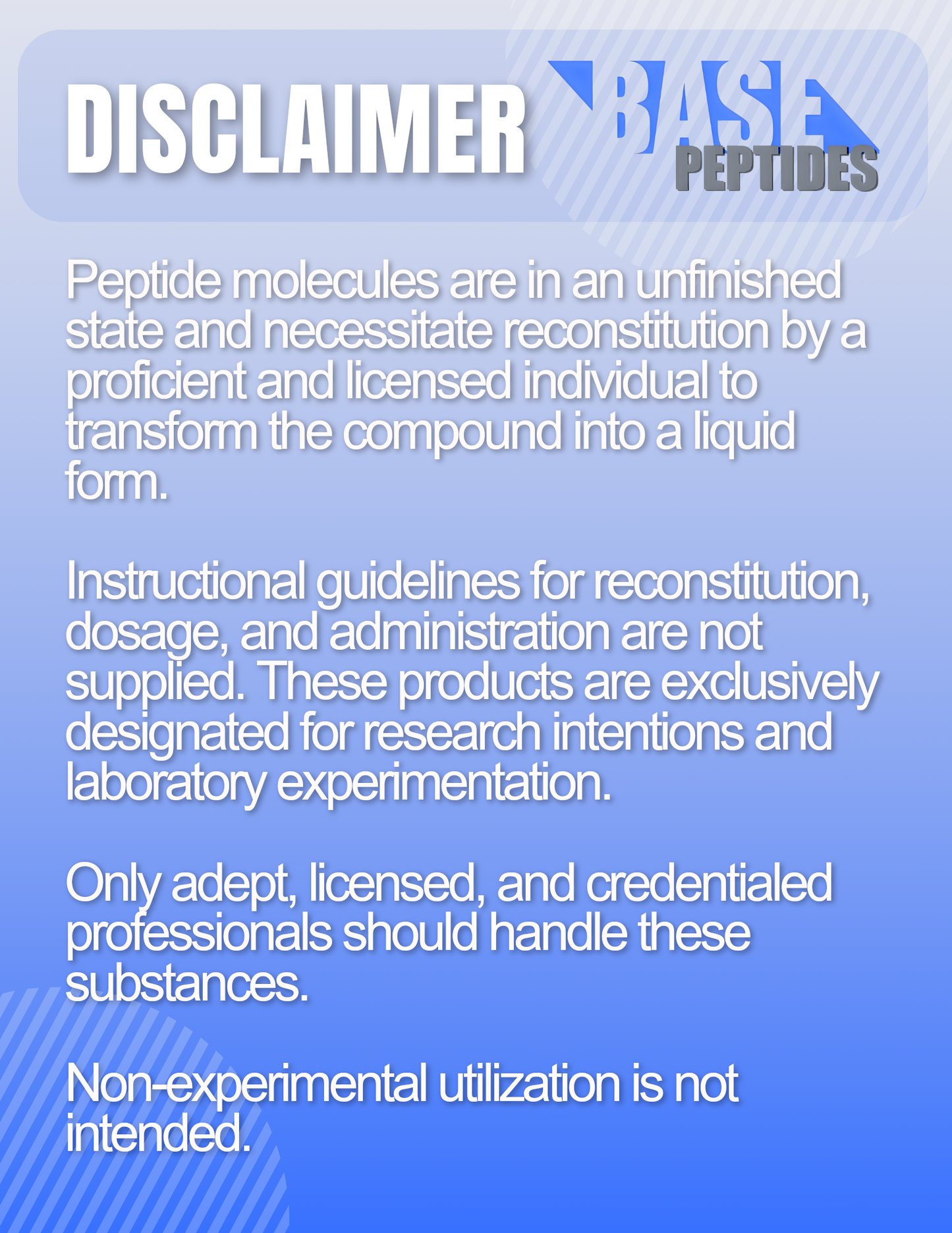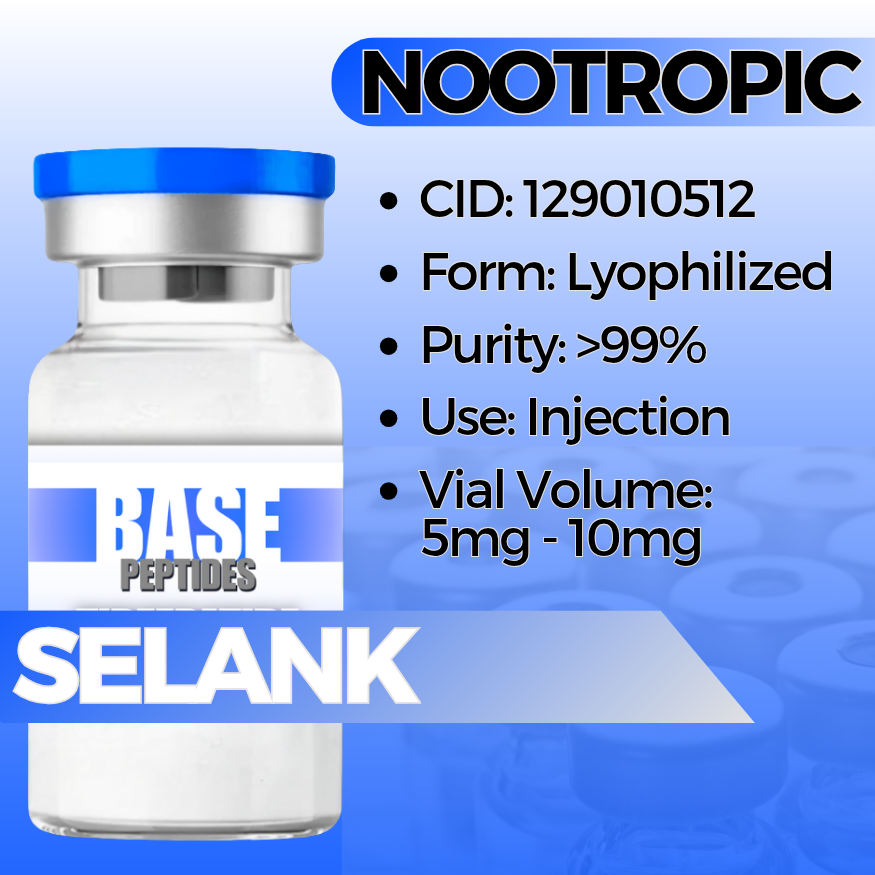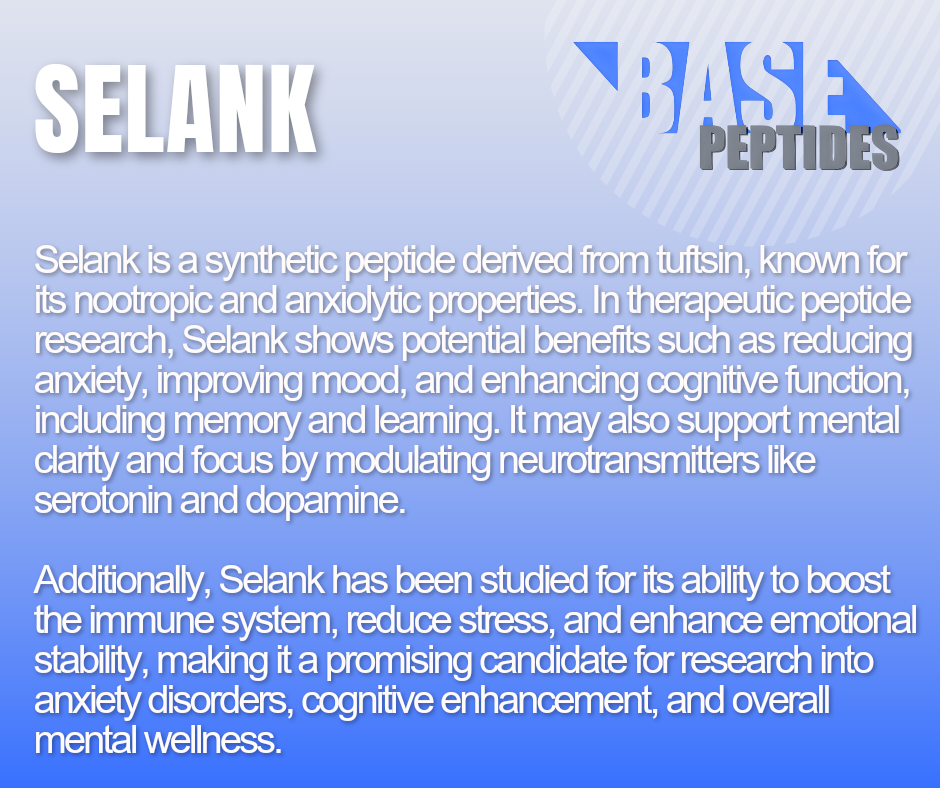Selank
Selank
Base Peptides are intended for licensed medical professionals and experienced researchers. Reconstitution required. Dosing and use instructions are not provided.
Couldn't load pickup availability
Selank — Synthetic Heptapeptide (Thr-Lys-Pro-Arg-Pro-Gly-Pro)
Selank is a short synthetic peptide derived from the Tuftsin sequence, designed to mimic its natural immune-modulating and neuropeptide effects. It’s used in research to study stress adaptation, cognitive support, GABAergic signaling, and immune balance.
- CAS: 129954-34-3
- PubChem CID: 10409719
- Formula / MW: C33H57N11O9 · ≈ 751.9 Da
- Sequence: Thr-Lys-Pro-Arg-Pro-Gly-Pro
- Origin: Analogue of the endogenous peptide Tuftsin (Thr-Lys-Pro-Arg)
- Selank interacts with GABA and serotonin systems, which are important in mood, stress, and focus regulation.
- It also appears to modulate cytokine balance, linking the nervous and immune systems through shared signaling molecules.
- Researchers use it to study how short neuroactive peptides may stabilize stress responses and support cognitive resilience.
- To explore neuroimmune signaling in stress or anxiety models.
- To analyze GABA-A receptor modulation and neurotransmitter gene expression.
- To study peptide-based anxiolytic mechanisms without sedation or dependency pathways.
Key Studies — What Was Tested, What Changed, Why It Matters
Stress and anxiety-response models
- What was tested: Selank in animal models exposed to chronic stress or anxiety stimuli.
- What changed: Reduced anxiety-like behavior and normalized GABA/glutamate ratios were observed.
- Why it matters: Suggests Selank influences stress resilience through fine-tuning of inhibitory signaling rather than direct sedation.
Cognitive and memory function studies
- What was tested: Performance on learning and memory tasks after Selank exposure.
- What changed: Improved retention and task performance, potentially linked to serotonin and BDNF gene regulation.
- Why it matters: Highlights how small peptides can modulate neuroplasticity and neurotransmitter signaling.
Immune modulation and cytokine balance
- What was tested: Cytokine profiles after Selank administration in immunologic challenge models.
- What changed: More balanced Th1/Th2 responses and reduced pro-inflammatory cytokines.
- Why it matters: Demonstrates Selank’s unique positioning as a neuroimmune modulator bridging mental and immune stress pathways.
Potential Research Applications
Neuroscience Models
- GABAergic modulation and neurotransmitter balance
- Memory, focus, and behavioral-stress paradigms
Immune & Inflammatory Pathways
- Th1/Th2 cytokine profiling and immune-stress cross-talk
- Neuroimmune peptide mechanisms
Peptide Analog Research
- Comparison to Tuftsin, Semax, and related neuropeptides
- Synergy with neurotrophic or stress-response pathways
Synergistic Peptides (for Study Design)
Semax
- Why pair: Another ACTH-derived neuropeptide with complementary cognitive and anti-stress activity.
- Angle: Combined models to explore cognition, focus, and neuroprotection.
BPC-157
- Why pair: Adds systemic and gut-brain repair elements to Selank’s CNS-focused profile.
- Angle: Cross-organ stress resilience and cytokine modulation studies.
GHK-Cu
- Why pair: Enhances tissue and neurotrophic gene expression; ideal for repair-focused designs.
- Angle: Evaluate BDNF, collagen, and inflammatory markers in joint models.
Design Notes
- Standardize exposure duration (Selank is short-acting in solution).
- Include behavioral and molecular endpoints together for context.
- Protect from oxidation and light; short peptides degrade easily in aqueous media.
Known Concerns (Context)
- Stability: Short peptides like Selank are solution-sensitive; always prepare fresh aliquots.
- Model dependence: Behavioral data can vary by environment; ensure consistent stress protocols.
- General: For laboratory research use only; not for therapeutic or human consumption.
Handle under cold, low-light conditions; verify purity before use in molecular assays.
Specifications & Handling
- Form: Lyophilized powder (lot-coded)
- Purity: ≥ 99% (HPLC/MS verified)
- Storage: ≤ −20 °C; protect from light/moisture
- In solution: Aliquot promptly; avoid repeat freeze–thaw
- Additives: None unless specified per lot
- Packaging: Tamper-evident; research-only labeling
Regulatory & Use Notice
Sold for laboratory research use only. Not for human consumption, medical, or veterinary use. No human-use instructions are provided. Buyer is responsible for safe handling and regulatory compliance.
Selank Peptide Research | Synthetic Heptapeptide | GABAergic, Neuroimmune & Stress-Response Studies
